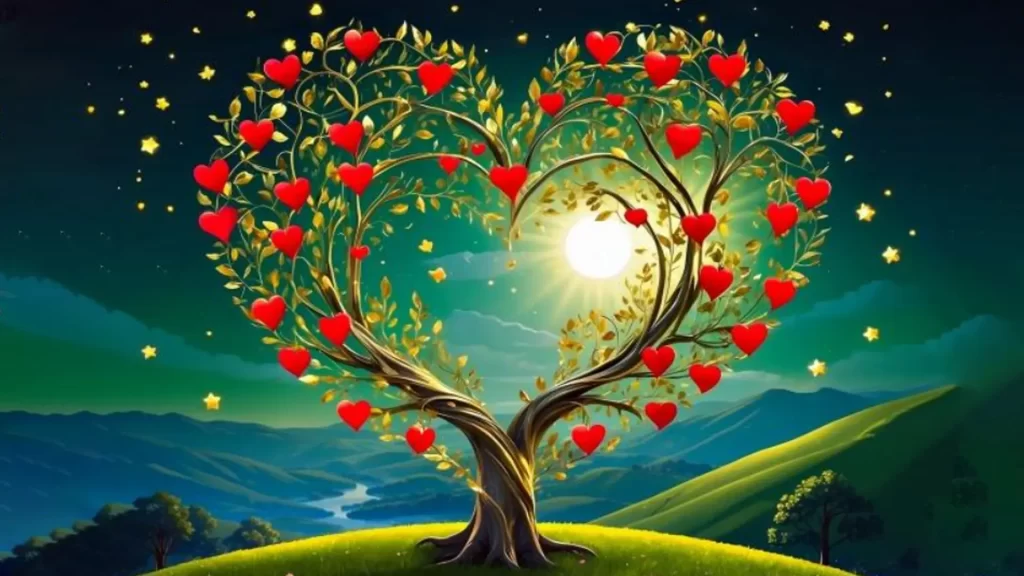Introduction
Have you ever wondered why the topic of affection and our way of relating to others is so complex and sometimes causes pain and confusion?

The answer could be hidden in the depths of our emotions. emotional attachment, that innate need for connection and belonging, It can be both a blessing and a curse. In this article, we will explore how our emotions influence our relationships and how we can navigate this complex maze.
“Love, like any other force of nature, must be controlled so that it does not destroy.” -Kahlil Gibran
What is emotional attachment?
“Emotional attachment, that emotional bond that connects us with those we love, can be both a source of great joy and deep suffering. While this bond provides us with security and a sense of belonging, when it becomes excessive or unhealthy, it can become at the root of confusion and constant conflict. Each person experiences attachment uniquely, shaped by their individual experiences and perceptions, which makes navigating this complex maze a challenge.”
Imagine a baby who constantly needs his mother to feel safe. This need for connection is natural, but if the baby does not develop a sense of internal security, where his basic emotional needs are met, he can grow up with an anxious attachment, constantly seeking the approval of others.
Roots of emotional attachment
Emotional attachment, that deep connection we seek with others, is a reflection of our human nature. However, the roots of this bond go back to the first life experiences. The absence of emotional tools and an environment that fosters emotional security in childhood can generate unhealthy attachment patterns.
How do you think your childhood experiences have shaped the way you relate to others?”
“Childhood is the time in which character is molded, habits are formed and the seeds of the future are sown.” – Maria Montessori
Consequences of emotional attachment
These patterns, characterized by anxiety, perfectionism, and desire to please, drive us to constantly seek external validation and fear rejection and abandonment. Thus, the search for connection becomes a compelling need, sometimes at the cost of our own identity and well-being. This duality, between the longing for connection and the fear of loss, defines much of our adult relationships, influencing how we love, how we relate, and how we perceive ourselves.”
An emotionally attached person may have difficulty establishing bonds and oscillates between the two opposite extremes, submission or control, fearing vulnerability and dependence.
“Do you find it difficult to trust others? Do you feel like you need to control everything to feel safe?”
How to overcome emotional attachment? How to take control of your relationships?
It is important to take stock of our current relationships, questioning our way of relating and whether they are healthy.
To build well-being, it is necessary to reconnect with your essence and reconcile with your life experiences, people and past situations to truly feel fulfilled from the acceptance of what you cannot change and with great hope of what you can build from your capacity in the future nearby.
This connection with your essence helps define your identity and worth based on a genuine relationship with yourself, practicing self-compassion and respect for your growth process, safeguarding your dignity and embracing your vulnerability.
“Healing is a process, not an event.” -Deepak Chopra
Practices such as meditative prayer, self-reflection, or mindfulness can help you be more present and manage your emotions more effectively.
“Ready to explore your attachment patterns deeper and build healthier relationships?
Download our free ebook: 5 Exercises to heal past wounds and cultivate relationships based on love’. Click here!”
** Looking for support to work on your transformation processes? “Would you like to work with me to overcome your attachment patterns?
Schedule your free consultation and find out how I can help you.” Click HERE…
Conclusion
Emotional attachment is a natural part of the human condition. However, when it becomes excessive, it can hinder our relationships and well-being. By understanding the roots of our attachment and developing healthy tools to manage it, we can build more satisfying relationships and live more fulfilling lives.
“Life is a journey, not a destination.” -Ralph Waldo Emerson
“Take a moment to reflect on your own relationships. Do you recognize any of these attachment patterns in yourself?
“What did you think of this article? Share your thoughts in the comments and join the conversation.”